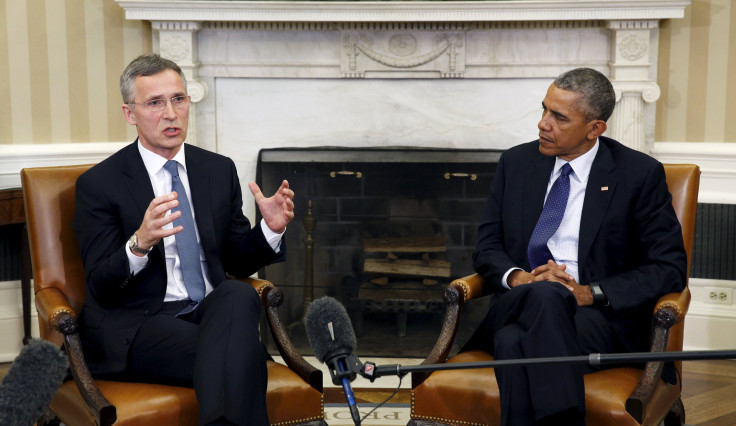Russia-NATO Relations 2016: First Meeting Since Ukraine Crisis Will Not Be 'Business As Usual'

The NATO-Russia Council is scheduled to meet next week for the first time since Moscow’s annexation of Crimea in March 2014, but don’t expect it to be a breakthrough in relations between the Western political and military alliance and the Kremlin.
“The sides will discuss threats from unprecedented NATO military forces buildup, including in the regions bordering with Russia,” Russian Foreign Ministry spokeswoman Maria Zakharova said Monday, Russian news agency Tass reported. “We will establish further dialogue basing on real NATO actions and in strict compliance with the alliance’s readiness to the equal cooperation towards peace and stability in the Euro-Atlantic region.”
NATO suspended its cooperation with Russia in April 2014 following the Kremlin’s annexation of Crimea from Ukraine and the subsequent start of a war in eastern Ukraine that has left more than 9,000 people dead. The ambassadorial-level meeting of the council, which was established to keep communications open, is scheduled April 20 at NATO headquarters in Brussels. It signals a desire to improve strained relations, Defense News reported. The conflict in Ukraine, military activity, risk reduction and terrorism are all on the agenda.
MiG-21 vs CF-18 Hornet: air exercises in #Romania. Watch more: https://t.co/9Pk65UU2wi #Canada #NATOhttps://t.co/rUjMoCpqPH
— NATO (@NATO) April 8, 2016
“This meeting is the continuation of our political dialogue,” said NATO Secretary-General Jens Stoltenberg in a press release Friday. “At the same time, there will be no return to business as usual until Russia again respects international law.”
Russian President Vladimir Putin has seen NATO expansion in Central and Eastern Europe as a threat to his sphere of influence. Eastern European states have called for a greater NATO troop presence in the region following the annexation of Crimea. The U.S. announced at the end of March it would deploy an armored brigade combat team to Eastern Europe along with equipment to reassure allies. NATO has also increased its naval presence in the region with the U.K. sending more ships to the Baltic.
The NATO-Russia Council was created in 2002. A political dialogue has continued since the annexation of Crimea, but it has avoided any discussion of military issues.
© Copyright IBTimes 2024. All rights reserved.






















